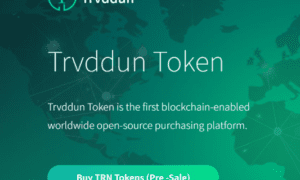Germany’s technology industry has become one of Europe’s most powerful economic engines. Known globally for precision engineering and manufacturing, the country is now equally recognized for software, digital infrastructure, and innovation. The digital transformation of German business – spanning from automotive and healthcare to finance and logistics – has created a massive and ongoing demand for qualified IT professionals. For anyone with technical expertise, this is not just a good time to work in Germany. It’s the best time in decades.
A nation investing in its digital future
Over the last few years, Germany has invested billions of euros in digital modernization. Government programs support AI research, cloud adoption, cybersecurity resilience, and broadband expansion across urban and rural regions. This push affects every sector. Manufacturers are automating production through Industry 4.0 systems, hospitals are moving patient data to secure cloud platforms, and public agencies are embracing e-government solutions.
The result is a rapidly growing digital economy that blends traditional German reliability with cutting-edge innovation. IT professionals are not only maintaining existing systems. They are helping redesign entire business models. For software developers, network engineers, and data scientists, this creates endless possibilities to shape the infrastructure of tomorrow.
A shortage that creates opportunity
Germany’s biggest challenge is not innovation – it’s manpower. The country faces a persistent shortage of skilled IT workers, estimated in the hundreds of thousands. This gap gives qualified specialists tremendous bargaining power. Salaries are competitive, benefits generous, and companies often offer relocation packages, flexible schedules, and continuing-education budgets.
Many employers actively recruit international professionals, offering English-speaking environments and help with visas, housing, and family integration. The message is clear: if you have the skills, Germany wants you.
Because of this talent shortage, career mobility within the country is extremely high. Switching between industries, from logistics to finance or healthcare, is common. Freelancers and consultants thrive, while permanent employees enjoy job security and steady advancement.
Innovation hubs and regional diversity
Germany’s IT ecosystem is geographically diverse. Berlin attracts startups and creative entrepreneurs; Munich is known for AI and industrial automation; Hamburg is strong in logistics and media; Frankfurt dominates in fintech and data centers; Leipzig, Cologne, and Stuttgart offer fast-growing regional clusters. This decentralization means opportunities exist far beyond the capital cities.
Large corporations collaborate with small, agile firms to accelerate digital projects. Universities partner with businesses for applied research, while incubators nurture young founders. The collaborative nature of the German tech scene is one of its greatest strengths. It balances creativity with structure and long-term stability.
Work culture and quality of life
Germany’s appeal extends well beyond its economy. The country is admired for its work-life balance and employee protections. A typical workweek rarely exceeds 40 hours, and at least 20 days of paid vacation are mandatory. Many companies offer 30. Remote and hybrid work models have become standard practice, allowing employees to manage family and leisure without sacrificing career goals.
Life outside the office offers comfort and culture. From clean public transport to safe streets and universal healthcare, Germany provides the kind of security that professionals from many other countries aspire to. Cities like Munich, Hamburg, and Berlin consistently rank among the most livable in Europe. For families, public education is excellent and largely free. For singles, the cultural and social scenes are rich and inclusive.
Diversity and international talent
Germany’s IT landscape is proudly multicultural. Teams often include members from across Europe, Asia, and North America. English is widely spoken in tech companies, but learning basic German is encouraged and rewarded. This diversity fuels creativity – different perspectives lead to better solutions.
Many international professionals who come for a short contract decide to stay long term. The path from employee to permanent resident is clear and straightforward, supported by modern immigration laws. Germany’s economy benefits from this openness, and so do its cities, which continue to evolve into vibrant, globally connected innovation hubs.
The bigger picture
Germany’s digital economy is not just about coding or hardware – it’s about shaping how society interacts with technology. Whether you’re working on secure infrastructure for banks, designing AI tools for sustainable manufacturing, or developing smart mobility solutions for future cities, your work directly influences millions of people.
Those ready to explore diverse IT opportunities across Germany will find a professional environment built on trust, long-term vision, and respect for expertise. Here, innovation doesn’t mean chaos. It means precision, progress, and purpose. Germany’s IT sector offers not only jobs but meaningful, future-defining careers for those who want to build the digital backbone of Europe.



































